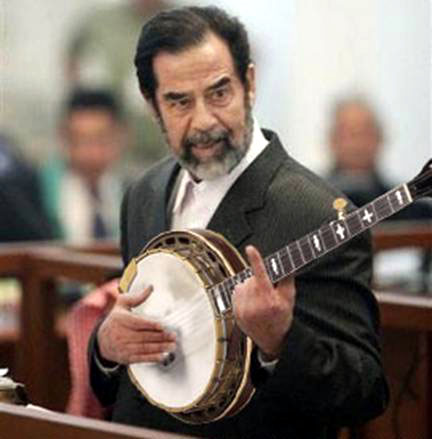Based purely on outward appearances, Tune-yards is a "band" that gave me pause at first. The day-glow face paint and hipster haircuts almost sent me running for the hills. But thankfully my mama taught me not to judge books by their covers or musicians by their haircuts, because musically this band delivers some pretty interesting material.
Whokill is the second full-length album by Tune-yards (and no I refuse to use the stylized tUnE-yArDs or W H O K I L L throughout this post). The "band" is essentially a Merrill Garbus solo project with some backing musicians to fill out the sound. Garbus herself plays the ukulele, creates live drum-loops and sings. On Whokill she also enlists the help of a bassist, guitarist and saxophone section.
What stood out about this album to me was its completely unique sonic profile. There really isn't a band out there that sounds quite like this. There are a few recognizable influences (funk, jazz fusion and afro-beat to name a few) but none that really come to the forefront as a dominating influence. And yet Tune-yards isn't genreless in the way that so many other groups are, by piecemealing different styles together into some sort of Frankenstein creation. This album is something of a novelty in modern music, a sound that is actually new. There's a freshness here that makes me wonder (and hope) if what I'm hearing is a taste of what is to come in rock and pop. It's the same kind of feeling I got when I first heard TV on the Radio.
Disjointed and chaotic are two words that immediately came to mind when I first listened to Whokill. Part of that is Garbus' loop-based compositional style, but another huge factor is her completely otherwordly voice. She is constantly playing vocal gymnastics, leaping from a surprisingly deep growl to a high thin falsetto within the space of one syllable. The production quality is also outstanding on all of the songs here, which works in spite of the distinctly lo-fi charm of her first album. Perhaps die-hard Tune-yard fans will think this album is too polished, but I think the added production quality shows off Garbus' ear for arranging and makes the band sound much larger than it really is.
But it must be noted that Garbus' sound really only works the way it should when she lets you have it full-force. The week points on this album are without a doubt the more downtempo quiet moments like "Wooly Wolly Gong" where she begins to sound too much like a typical singer-songwriter, a guise that doesn't fit her as well as it should. Tune-yards only really seem to hit their stride when the music kicks into higher gear on tracks like the opener "My Country," the tongue and cheek toughness of "Gangster" or the lead single "Bizness." In general though, when Garbus lets her songs rock a little bit harder, her unique songwriting comes out more and creates some pretty exciting music.
Below is the video for "Bizness" which cranks up the hipster something fearce, but is worth sitting through for the music.
Subscribe to:
Post Comments (Atom)




No comments:
Post a Comment